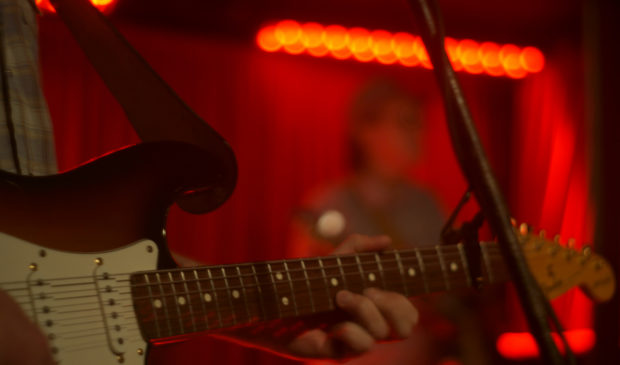Music venues’ ‘agent of change’ proposal faces revisions ahead of spring vote
Friday, February 3, 2017 by
Chad Swiatecki The city of Austin has concluded its series of public forums on a pair of proposed policy moves that would attempt to draw clear lines of responsibility between new residential developments and creative spaces that are increasingly co-mingling in the same neighborhoods as Austin’s population density increases.
Throughout January, the city’s Economic Development Department took comments and input on a proposal to institute a mandatory entertainment license for all music venues and the so-called “agent of change” concept, which would make establishments moving into an already-developed area responsible for managing and mitigating the impact their presence creates.
Agent of change is becoming an increasingly important issue as music venues and other creative spaces become closer neighbors of housing and hotel units in fast-growing parts of the city, creating friction over noise levels even in cases where music venues were already open for business.
That dynamic played out in recent years as the Rainey Street area became a dense housing and entertainment hub, and a recent $1 million lawsuit filed by the Westin Austin Downtown hotel against the nearby Nook Amphitheater music venue centered around Westin’s unsuccessful attempts to soundproof rooms against late-night dance music volumes.
The entertainment license measure would – in theory – replace and streamline a raft of permits and approvals that are currently only required for outdoor music venues. It would also apply to all businesses that derive the majority of their revenue around music or other entertainment programming and would draw clearer lines of acceptable noise, capacity and other operations that could result in eventual license suspension or revocation if repeatedly violated.
Alex Lopez, deputy director of the Economic Development Department, said at Monday’s session at the Austin Public Library’s Cepeda Branch that the sessions have helped identify a spectrum of concerns from homeowners and venue operators surrounding the issues.
One of the biggest is the matter of enforcement and monitoring, because the licenses would be impacted by documented violations using sound monitors, on-site visits and other up-close methods instead of a simple complaint to police. The city has approved funding for two new positions inside the music and entertainment division to help with monitoring, though those positions would also possibly be involved in the new Nightlife Initiative recently approved by City Council as part of the Music and Creative Ecosystem Omnibus.
Lopez said city staff are working to compile the public feedback to make changes to the proposed measures, which she said would be put before Council by May at the earliest.
Both agent of change and the entertainment license issues have sparked much discussion in local music circles, with venue owners concerned that the license system is “all stick and no carrot” and has drastically changed from how it was first presented to business owners in meetings last summer.
Denis O’Donnell, co-owner of the White Horse country music bar in East Austin, said the license concept was initially pitched by city officials as the gateway procedure that could eventually see holders’ liquor taxes and utility bills reduced as a way to preserve Austin’s live music culture in the face of rapid growth and rent increases on commercial properties. Information sheets distributed by the city at meetings about agent of change and the entertainment license system make no mention of those incentives.
“These should be separate pieces and shouldn’t be tied together, because the license was sold to us as an incentive program, but now the fear of the bar owners is kicking in as far as what it could mean, even though we understand it’s still in the process of being made,” O’Donnell said.
“The entertainment license needs to justify its existence,” he continued, “because in the most dense live music environment in the world, you’re already going to have more competence than anywhere in terms of operators knowing what is expected of them.”
John Zozzaro, co-founder of an Austin music industry incubator known as Entertainment Garage, attended Monday’s session to gauge what the city is doing to preserve performance and revenue opportunities for musicians.
“It’s good that the city is taking the initiative to help both sides navigate through the weeds and try to come to an agreement on the best way forward,” he said. “Another positive is that it brings more attention to the issues that music venues are facing so the city can identify how to help them using all the resources that they have available.”
Photo by MarkScottAustinTX made available through a Creative Commons license.
The Austin Monitor’s work is made possible by donations from the community. Though our reporting covers donors from time to time, we are careful to keep business and editorial efforts separate while maintaining transparency. A complete list of donors is available here, and our code of ethics is explained here.
You're a community leader
And we’re honored you look to us for serious, in-depth news. You know a strong community needs local and dedicated watchdog reporting. We’re here for you and that won’t change. Now will you take the powerful next step and support our nonprofit news organization?








